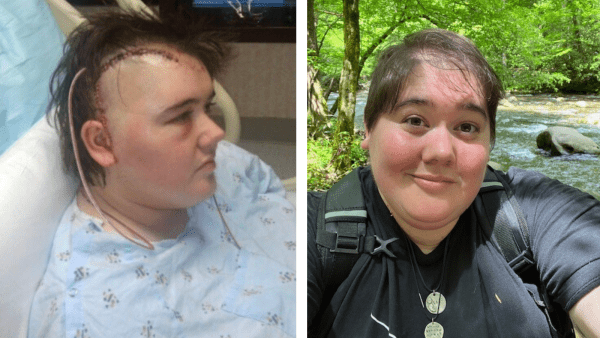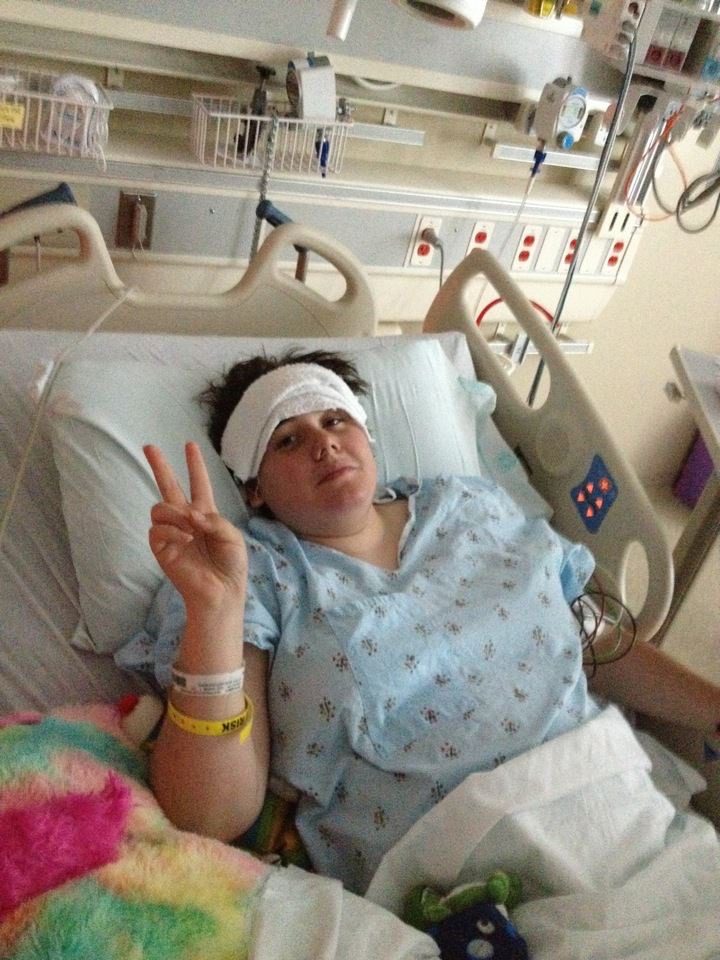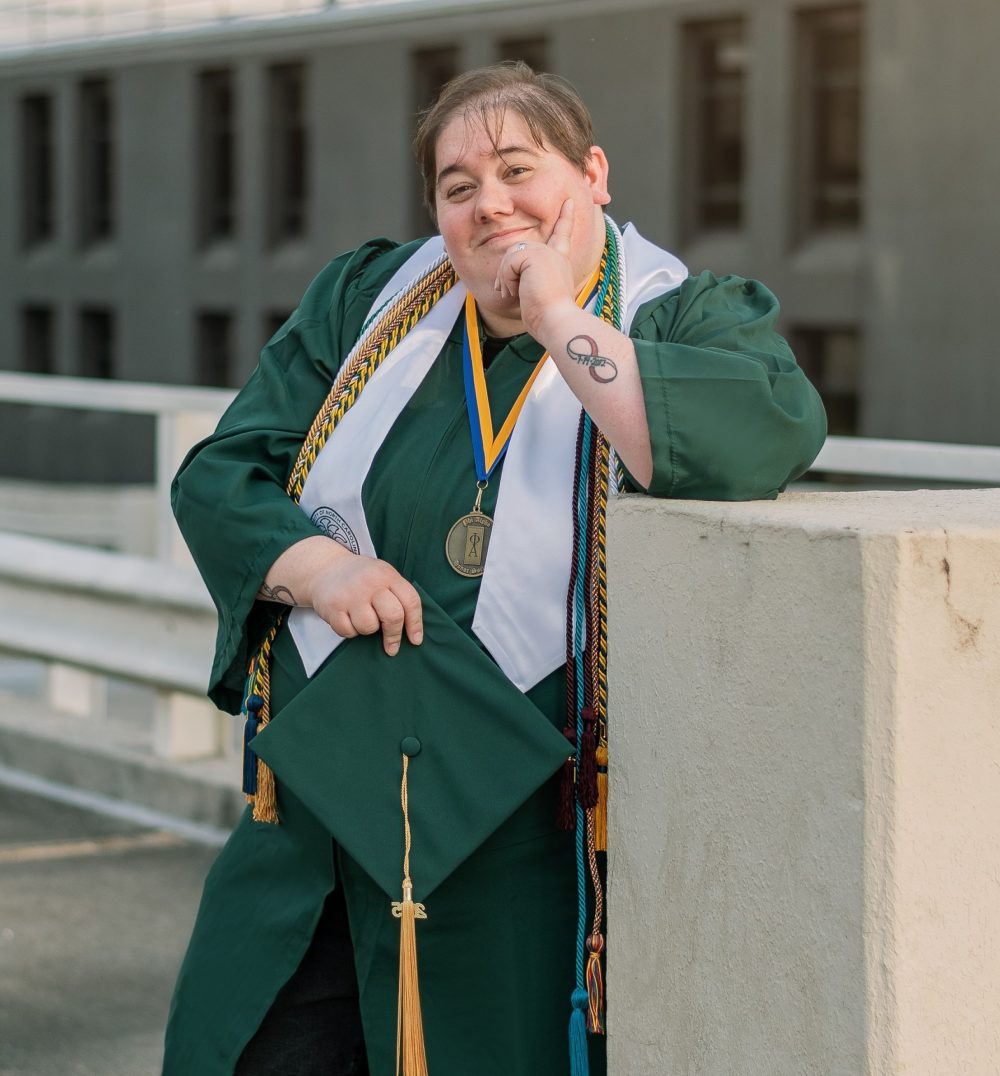The cost of being dismissed: what my stroke taught me about advocacy

Editor’s Note: Kaitlin Ferguson is a first-generation college student who earned a Bachelor of Social Work in 2025 from UNC Charlotte and is currently pursuing a Master of Social Work at the University’s College of Health and Human Services. When she was 21 and working toward an associate degree, Ferguson suffered two strokes that left her with with memory loss and language comprehension issues that not only interrupted her studies but also her life. Based on the challenges she faced during her medical crisis, Ferguson, now 35, is planning to enter the field of medical social work where she can advocate for others.
Ferguson recently published an article on LinkedIn about her experience. The article is shared here with her permission.
___________________________________________________________________
By Kaitlin Ferguson
I’ve had chronic headaches most of my life so I’m familiar with how they usually feel. However, when I was 21 years old, I had developed a migraine that felt different. It had been going on for about seven days and after trips to the urgent care and my primary doctor, I decided to go to the emergency room.
Scared and trying to advocate for myself, I explained my history of headaches, how this one felt different, and that nothing had relieved it. I asked to have an MRI done. The emergency room doctor didn’t think I was at that point. He gave me a shot of morphine, sent me home, and told me to follow up with a neurologist.
Seven days later, I was in a critical care ambulance being transferred to one of the top neurosurgery hospitals in North Carolina. A blood clot in my brain started to bleed out and I was having a stroke.
Three weeks later, I had a second stroke caused by a blood clot in my brain that had been obscured during the first hospital stay.
I was too young, too healthy-looking, and not likely to be taken seriously. I nearly died because of it.
____________________________________________________________________________
I cannot accurately describe what it feels like to be a few months shy of 22 years old and be asked if you have a living will. I cannot accurately describe what it feels like to suddenly wake up in a brain that doesn’t work the same anymore. My strokes left me with both short and long-term memory loss, continuous cognitive fog, and difficulty speaking as I frustratedly forgot words, phrases, and topics mid conversation. These were mostly invisible symptoms but still came with a heavy cost.
There is not a lot of outward support or advocacy for people like me — young adults who’ve had strokes, brain injuries, or chronic neurological conditions that don’t outwardly look like a disability. One of the hardest parts is realizing that when your condition or trauma doesn’t fit the mold people question you, or worse, dismiss your experiences completely.

Over the past several years, I’ve heard numerous well-meaning comments like:
You’re too young to have all that happen
You don’t look like you’ve had a stroke
Thankfully you’re young and recovered
Don’t worry, I forget things sometimes, too
At least you’re not my age and can bounce back quicker
These comments, although meant as encouragement, often made me feel a little erased. Over time my self-esteem morphed into survivor’s guilt and then impostor syndrome.
Was I making this all a bigger deal than it was?
Shouldn’t I just be grateful that I’m alive and still able to walk, talk, work, etc.?
I know I am very lucky to be here, so why am I still struggling so much?
____________________________________________________________________________
Here’s the thing though, you can survive something and still be grieving it. You can be grateful but still deserve support. You can look “fine” and still be carrying around something that no one else sees.
Now, as a social worker, I carry these truths with me and try to be mindful of making space for others who may also feel unseen.
Many of us know that disability isn’t always visible but understanding that support doesn’t always mean offering a silver lining is something I think many of us still struggle with. Sometimes the most powerful support is listening, validating, and believing.
____________________________________________________________________________
The conversations about invisible disabilities need to continue and we need to shift some of the ways we train professionals — not just in medicine but in any helping profession — to recognize the harm of minimizing someone’s lived reality, even unintentionally.
If you’ve ever felt unseen or like you didn’t qualify to speak out about your pain or experiences, please know that you do and you are not alone.
If you’ve made it this far, it means a lot to me that you took the time to read my story. Let’s keep having these conversations, not only to share stories but to change systems.
